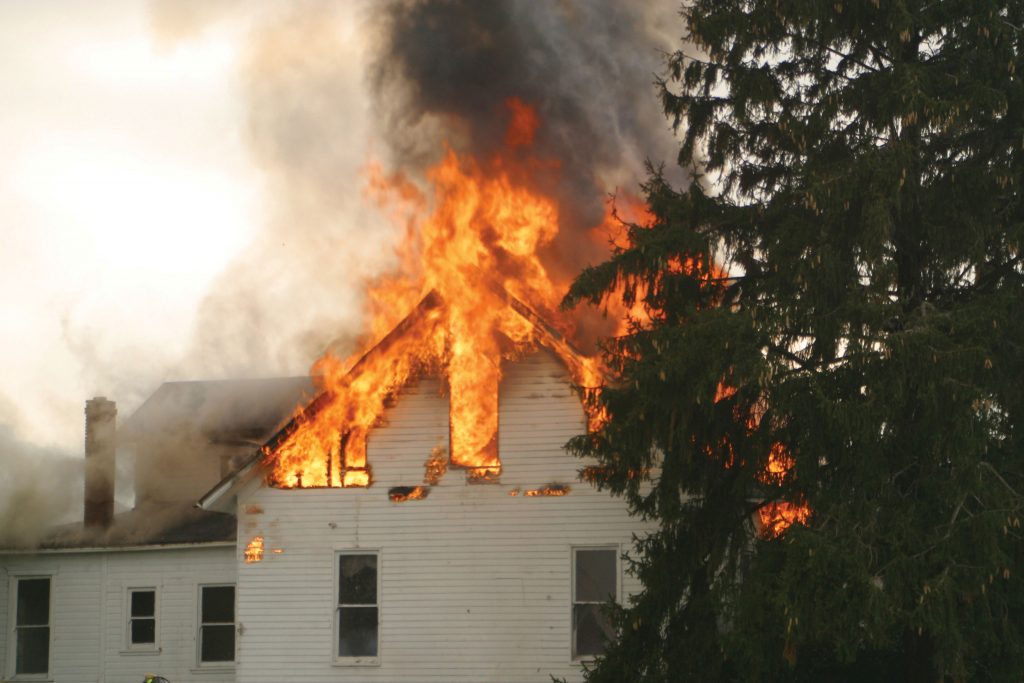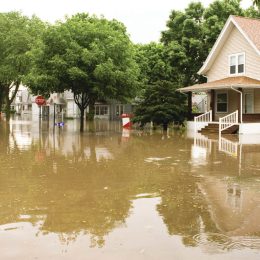
Home fires started by malfunctioning electric appliances and faulty wiring kill nearly 500 Americans each year and cause $1.3 billion in property damage. But many electrical fires can be prevented simply by following basic safe practices and being aware.
“The statistics are staggering and disturbing,” said John Gasstrom, CEO at Indiana Electric Cooperatives. “But behind the statistics are our families, friends and neighbors. Hearing about anyone injured in an electrical fire is what’s most upsetting. Oftentimes, injuries or the fire itself could have been avoided.”
Electrical wiring consists of metal wires that “conduct” or move electricity from place to place and materials like rubber that “insulate” the conductors and keep electricity from escaping its intended path. Electrical fires can start when its protective insulator or connections are compromised and electricity escapes. Among them:
- Improperly installed or outdated wiring
- Faulty outlets
- Exposed wires on cords, including extension cords and device cords
- Problems with light fixtures, lamps and outdated appliances
- Misuse of electrical cords, such as overloading circuits and outlets
An “arcing fault” results when a conductor’s insulation is compromised. This creates a discharge of electricity between two or more conductors and results in heat, which can further break down a wire’s insulation and trigger an electrical fire. Arc faults can occur when older wires become frayed or cracked, when a nail or screw damages wiring in a wall, or when outlets or circuits are overloaded.
If you experience dimming or flickering lights, unusual burning odors, unusual buzzing or sizzling sounds, or circuit breakers that trip repeatedly, contact a qualified electrician immediately.
“While it’s important to do all we can to prevent electrical fires, we must also prepare for the worst beforehand,” Gasstrom said.
Installing smoke detectors is the number one way to proactively keep the home and family safe. Smoke detectors should be installed in every bedroom, outside each sleeping area, and on every level of a home. They should be tested monthly and have their batteries replaced annually, or in accordance with the manufacturer’s instructions.
A fire escape plan should also be in place and practiced regularly. Make sure any fire extinguishers you have are labeled for Class C, or electrical fires. Multipurpose extinguishers can be used on different types of fires and will be labeled with more than one class, like A-B-C.
Tips to avoid electrical fires at home
- Install smoke alarms in every bedroom, outside each sleeping area, and on every level of the home.They should be tested monthly, and batteries should be replaced each year. Replace alarms every 10 years, or according to manufacturer suggestions on the alarm.
- Have your home inspected by a qualified electrician to ensure all electrical work is up to code, especially if it’s older than
20 years. - Do not overload outlets. Power strips do not provide more power to a location, only more access to the same limited capacity of the circuit into which it is connected.
- Keep heat-producing appliances unplugged when not in use.
- Install arc fault circuit interrupters (AFCIs) to safeguard against arc faults, which could cause a fire.



